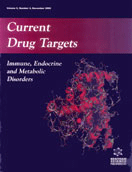Abstract
Genes that code for the production of protein antigens have been cloned and recombined with plasmids. Gene-plasmid constructs have been amplified in a bacterial host, purified and administered to a mammalian host. The gene is expressed in the host and the antigen that is produced induces an immune response. These so-called DNA vaccines have been prepared for a number of infectious agents, some tumors and some allergens, and were shown to be efficacious in animal studies. Clinical trials for some of these vaccines are underway. Advantages of using a DNA vaccine include the abilities to favor a T helper-1 or a T helper-2 lymphocyte response and to induce a cytotoxic T-lymphocyte response. Moreover, some reports have indicated that they produce long-lasting immunity. DNA vaccines might be used in situations where no effective vaccine is available for a disease. However, their use might not be risk-free. Further research in this field is needed to determine their efficacy and to identify the risks involved in using them.
Keywords: Plasmid DNA Vaccines, T-lymphocyte response, cell-mediated immune, Transporter proteins, Histocompatability Complex, isopropylthiogalactoside, allogeneic MHC
 3
3














